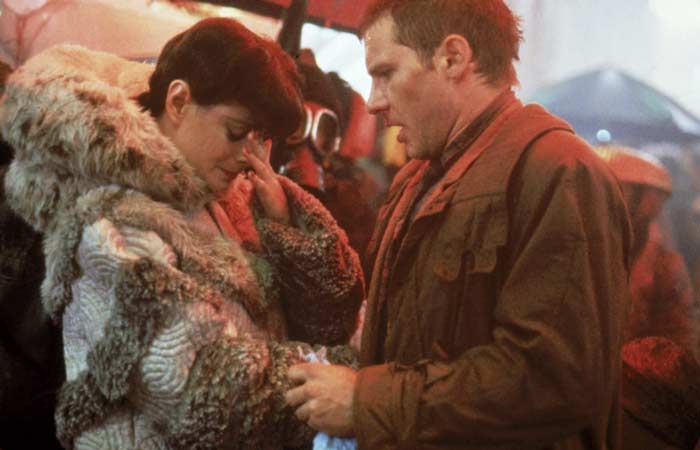If ChatGPT or BARD is writing IBM’s *ai* content, there is a snicker of self-awareness already happening in the LLM world and we’re not picking up on the warnings. Trust is going to be a huge hurdle for *ai* in the coming years, but the genie is already been released from the … to the… Well, let’s just say, the code is out there and humans are feeding it (willfully at this point) personal data, sensitive corporate data, trade secrets, IP, schematics.

Before you use AI to get help get where you’re going – you need to trust what it’s doing.
We’re giving *ai* as much of the history of human culture as we can, as fast as we can. And the government policy issued in December of 2023 signals our misunderstanding. Here’s their page: The State Department of the US – AI.
#trustworthyai
Um, yeah… About that.
I love using Blade Runner as a future perspective when talking about *ai* today. And both BR movies have lessons. Don’t think sci-fi doesn’t predict future outcomes? Arthur C. Clarke is recognized as one of the conceptual fathers of satellites. (Google it if you don’t believe me.) So Ridley Scott and Dennis Vellanouva may be illuminating potential futures and potential disasters ahead for humanity. We do know this: *ai* is developing and evolving faster than we (even the data scientists and MIT thought-leaders) understand. [Aside: If you know what “Q” is, from the Openai coup attempt, please let me know. Let all of us know.]
Sci-fi so epic, so real, that the predictive potentials become visionary. Uh oh, we’re hoping for more of a Minority Report future, No, wait, a … Damn, why are they all so dystopian? Foreshadowing? Is there a devil in the details, today in 2023, with the annual celebration now celebrated as GPT-mas?
Rachael is a great example of the best of the best in *ai* and robotics of the future. She is not aware of the world around her, or that she is not human. Her memories give her depth and hope. Deckard gives her a future. But even after three versions of the original Blade Runner movies were released, we may be misunderstanding the meaning of Phillip K Dick’s short story, Do Androids Dream of Electric Sheep. (free download in all formats)
I pressed for the summary from ChatPDF.
Philip K. Dick's "Do Androids Dream of Electric Sheep?" contains several warnings and cautionary themes about the impact of technology on society. Some of the warnings expressed by Dick include:
1. Dehumanization: The novel warns about the potential for technology to dehumanize individuals, particularly through the creation of androids that blur the line between human and artificial life. This blurring of boundaries raises questions about empathy, identity, and the ethical treatment of sentient beings.
2. Ethical Dilemmas: Dick’s work raises ethical concerns about the use and treatment of artificial life forms. The novel prompts readers to consider the moral implications of creating and exploiting beings that possess human-like qualities, including emotions and desires.
3. Environmental Consequences: The story’s post-apocalyptic setting serves as a warning about the potential environmental consequences of unchecked technological advancement. The devastated landscape and scarcity of natural resources underscore the dangers of environmental degradation and the need for responsible stewardship of the planet.
4. Alienation and Isolation: The novel highlights the potential for technology to contribute to feelings of alienation and isolation among individuals. The characters’ struggles with loneliness, disconnection, and the search for authentic human connections serve as a cautionary tale about the psychological impact of technological advancements.
5. Existential Questions: Through the exploration of artificial intelligence and the nature of consciousness, the novel raises existential questions about the essence of humanity and the potential consequences of blurring the lines between human and artificial life.
These warnings and cautionary themes serve as thought-provoking commentary on the ethical, social, and existential implications of technological progress, inviting readers to consider the potential risks and consequences of advancing technology.
Also, in most sci-fi, humans have not done a great job with the environment, the economy, or the state of being a human on Earth. In BR 2049 we have a new form of robot or holographic *ai* in in Joi. (No pun intended in her name, right?)
We want Joi to win. We want to liberate K’s cheerleader.
I think we still want Joi to win. And we want our personal fortunes to be tethered to *ai* ascension as we rocket upward toward… What?
Doom? Environmental collapse? Global wars? Police states? Hunger Squid Games 2023?
Wake up humans, we’re already behind in this concept of artificial and intelligence. And our gentile concept of GIA, or general artificial intelligence.
For today: The *’s I use are like the protections I’m putting up around *ai* in my use case. Like the literal asterisk, more info BEFORE and AFTER our GPT-moment.
Merry GPT-mas 1.0, y’all!





